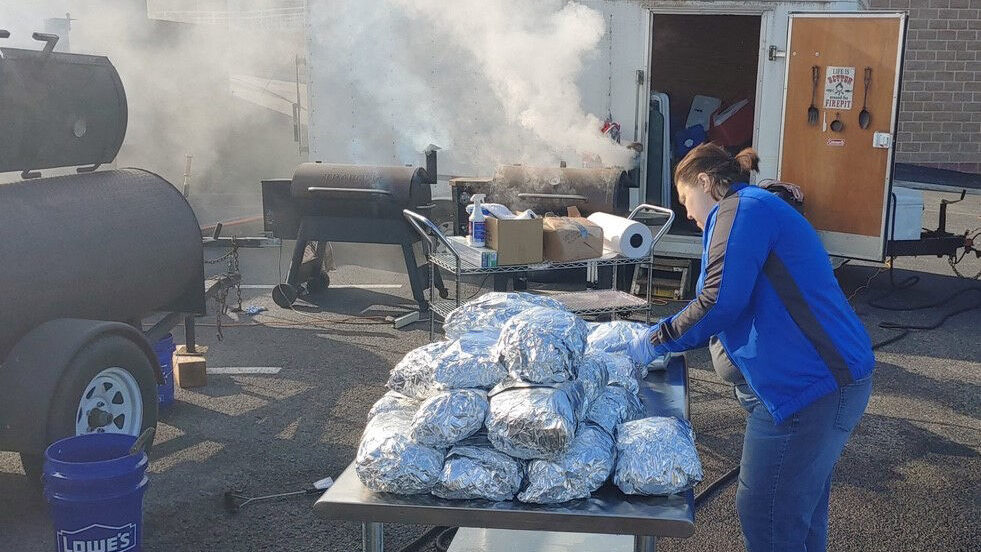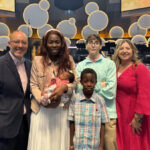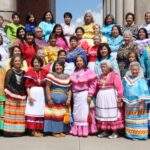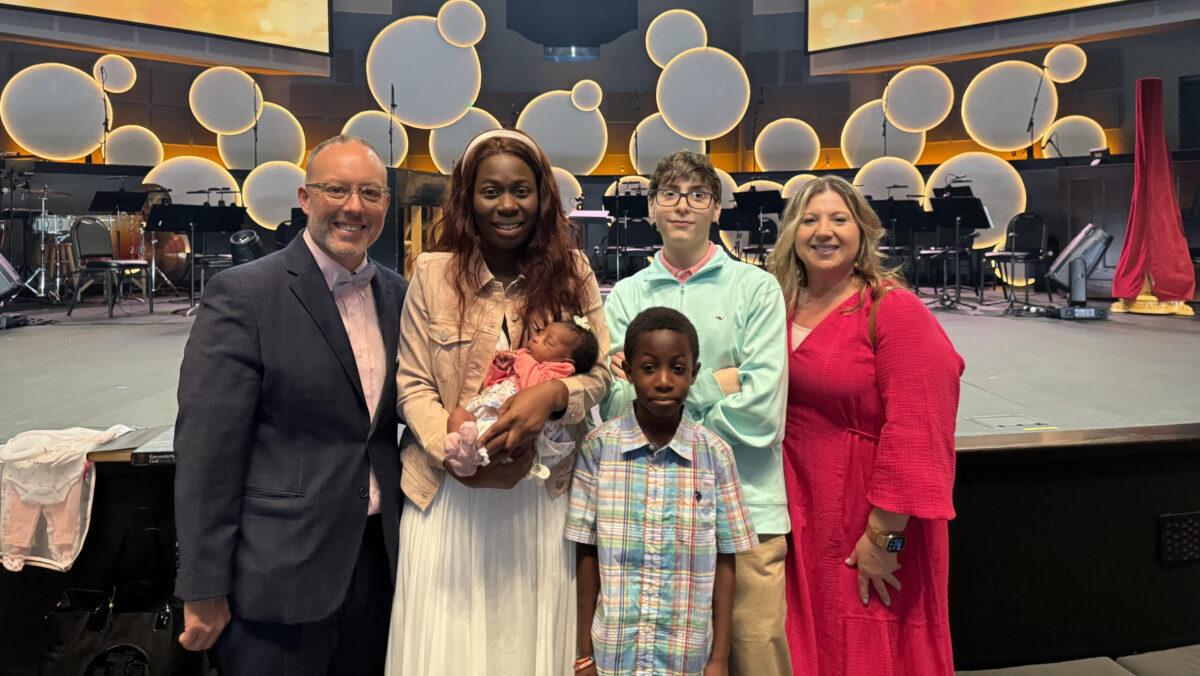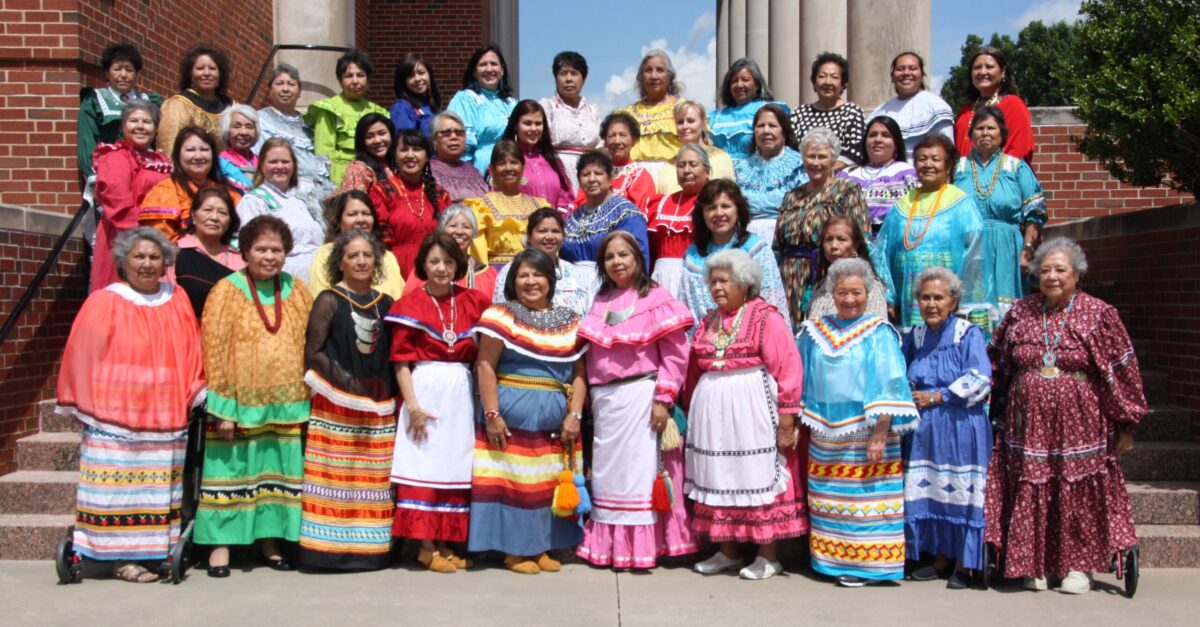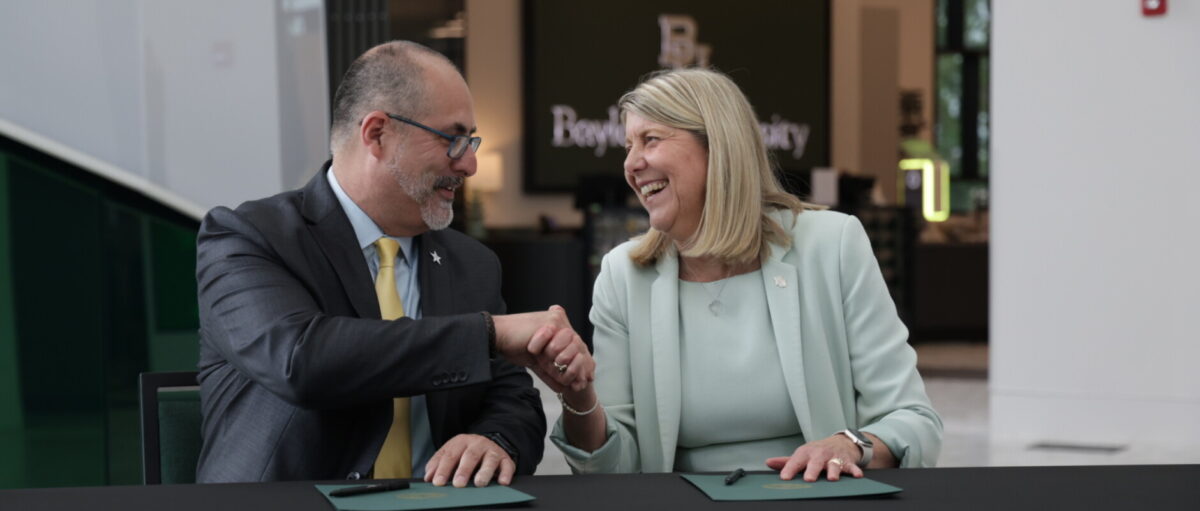Pastor Ed Amundson said the panic button was within reach when the COVID-19 pandemic struck in March 2020.
Instead of pushing it, he gathered his staff and hit the prayer button.
‘CHARGE!’
What resulted for High Street Baptist Church, Somerset, Kentucky, took about 18 months to come to full fruition, but the harvest season has certainly been sweet — 37 salvations and baptisms in the fiscal year that ended Sept. 30. Two more have already been added in October after building momentum from a year of “being the church” in the Pulaski County community.
High Street didn’t curl up when COVID-19 locked down churches in March 2020. It was quite the opposite — they said “CHARGE!”
Amundson, who has been the pastor since 2008, said he remembers getting the staff together after that second week in March when the world stopped. It was a time of turning to God for answers, he said, because he was out of them.
“COVID brought about a panic because it happened almost overnight,” the pastor said. “We heard about it in January and by March they are closing churches. I have a staff here that’s very bright and we were dumbfounded. What do you do to carry out the Great Commission? How do we get the gospel out?”
Amundson credited his staff — Brandon Carrier and Jeremy Horne — with staying positive throughout the pandemic and being relentless workers during it. He also said Stacey Burton, a Kentucky Mission Service Corps missionary through the Kentucky Baptist Convention, was instrumental and an MVP performer.
“She should be missionary of the year for the next 10 years,” he said. “She is phenomenal. The staff prayed and I had a meeting with Stacey. I told her we had to think outside the box. God is calling us to do something different.”
‘Monstrous task’
It was decided that a food program where hot meals could be provided was something that many in the community needed. This was during the first four months of the pandemic when stimulus checks hadn’t happened and people were desperate.
“We thought we’d feed 20 or 30 people and that would be a monstrous task,” he said.
With only 10 people inside the church building at a time, they began making meals that included a protein, a starch, a fruit or dessert and bottled waters. They were packed in Styrofoam clam boxes and kept fresh and hot in a tall oven — much like what may be seen at a pizza store — by the front door. Runners would take the warm, wrapped boxes to people who were lined up in their cars.
“Within three weeks we went from the 50 to 60 range to over 100,” Amundson said. He said cars would be lined up from the parking lot to the street by 5 o’clock with families waiting for the meals they had ordered. They would RSVP through Burton’s phone. She had worked with some of the nearby housing projects and others in the community who were most in need of help. He said the church also had developed its own database of people who may need assistance.
Teenagers were directing traffic in the parking lot. Since they had a captive audience, Amundson noted, they needed to capitalize on it by sharing the gospel. So they equipped the youth with an Evangecube, an easy and quick way to share the gospel message. They began getting prayer requests and needs as they waited for the food.
Joining others in ministry
Amundson said he wrote devotions and on the other side of the paper would be a coloring page for children. They passed out packaged crayons so parents could take the page home, talk about the devotion and then give it to their child to color.
“We started getting phone calls and within a couple of more weeks, we had 300 showing up (for meals),” he said. “In the meantime, we’re scrambling to find meat. We were making hot meals on the fly — Sloppy Joes, grilled chicken breast, spaghetti, tacos — whatever we could find.”
Kim Floyd, wife of Lake Cumberland Association Mission Strategist Tommy Floyd, worked the kitchen. She had catering experience, which was a plus, and she wanted the meals to be good.
“We knew right away we weren’t going to be able to sustain this,” the pastor said. “We started contacting sister churches in the Lake Cumberland Association. We had about five who joined with us.”
Money was sent to High Street for the food, where it would be made and then distributed to other churches as well. Because of donations, the church never had to spend a dollar on the project, Amundson said.
Eventually they were producing about 600 meals. That’s when Taco John’s and then Chick fil-A stepped up to provide food. He said a restaurant in Burnside that was closed gave the church all of their freezer goods before they went bad.
“Between it all, we were feeding up to 1,000 every Wednesday,” Amundson said. “We did that through the end of July 2020.”
They continued having Community Dinner Nights at the church facility with everyone socially distanced and wearing masks. They could handle about 200 because of being limited to 50 percent capacity by the pandemic. There was also a meal on Fridays once a month and it all fed into the Christmas Backpack program. The database was growing and so were gospel conversations.
“We were sowing seeds hard,” Amundson said.
Gospel seeds
They had a fall pumpkin party where 500 pumpkins were given to families who came to the church, he said, along with serving everyone a meal.
When the calendar flipped to 2021 in January, they started reaping the harvest from the good work that was done and the gospel conversations that occurred. The gospel seeds had taken root.
The church had been the church and many started coming with professions of faith and the desire to be baptized. They were baptizing so many that the baptismal pool had a breakdown that cost about $7,000 to fix, Amundson said.
A typical year would have maybe a dozen baptisms, but now they were doing that every couple of months. The previous high was 25 and they have had a few years in the 20s, the pastor said. They had only nine in 2019.
The outreach into the community where the church supplied so many needs was making a difference, Amundson said. They did more than feed to meet physical needs. They also shared the gospel and reached out to other churches and deeper into the community than ever before, the pastor said.
They rented out the movie theater and took 75 residents from the local drug treatment facility to see the movie “Overcomer” — and did the same for the Lincoln County High School track team.
‘Adopt a family’
Burton provided meals three times a week for the local drug treatment facility and the church was the site for a sobriety session called “Trudging,” where residents walk from the facility to a location no matter what the weather. “Stacey provided meals once a week, twice a week and now three times a week for them,” Amundson said.
The church partnered with an African-American church, South Maple Street First Baptist Church, where they had a men’s breakfast, cooked out with them on Mondays and played basketball with the youth where positive relationships were developed.
The women in the church had a monthly outreach to some of the housing project areas. The church also established an “adoption program” with some of the women from the Sky Hope Drug Treatment Center where Burton had established relationships.
“We challenged our people to adopt a family and people came in droves to choose a family,” Amundson said. “We became surrogate families, somebody they could call when they have a need, somebody to pray with them.”
Amundson said the 80/20 rule where 20% of the people do 80%of the work was flipped during the coronavirus pandemic.
“I’ve heard a lot of other churches experienced some really incredible things, too,” he said. “This was my loaves and fishes story.”
EDITOR’S NOTE — This story was written by Mark Maynard, and originally appeared at Kentucky Today, the newsjournal of the Kentucky Baptist Convention.

